15 min read
How to Calculate Cap Rate: Definition, Formula & Examples
Learning how to calculate a rental property’s cap rate helps you evaluate its potential income, weigh it against other investment opportunities, and make more...

After a potential tenant has found a rental online and filled out a rental application form, the landlord should conduct a thorough tenant background check. Though a background check for tenants is not a required step, it’s highly recommended. Landlords can be sure that they’re protecting not only themselves, but the neighborhood as well by using thorough background checks for tenants.
Marketing. Applications. Leases. Payments.
Marketing. Applications. Leases. Payments.
A background check is a screening tool landlords can use to gain in-depth insight into a tenant’s past to ensure they’ll be reliable renters. Background checks pull information from government databases and credit bureaus concerning the tenant’s criminal history and credit score.
Once the tool searches these databases, the information is presented to the landlord in a detailed report.
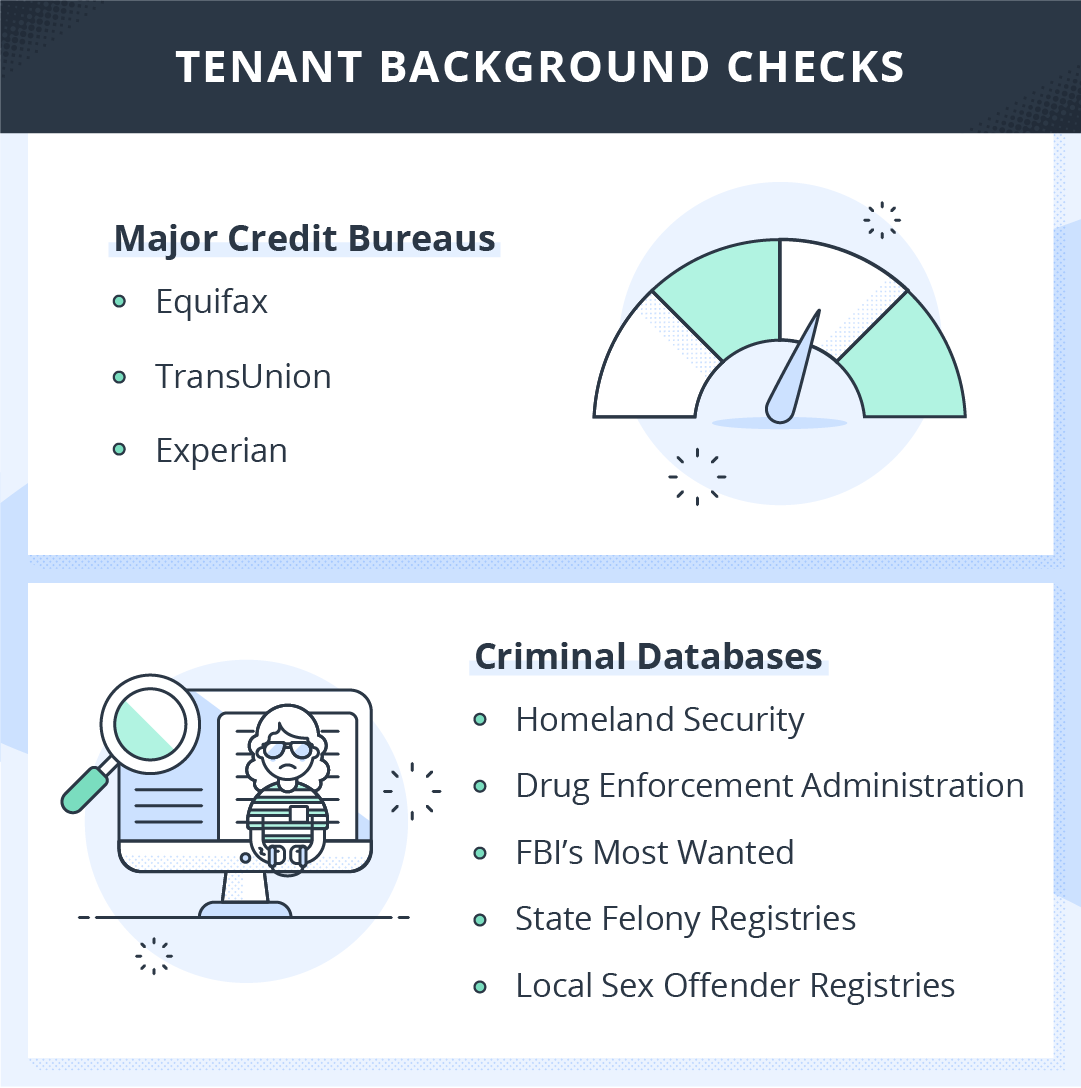
After a tenant has filled out the rental application form with all of their personal information, landlords can request applicants to authorize and pay for a tenant credit and background check. Using information from the rental application, such as date of birth, social security number and former addresses, background check services gather the necessary details for a landlord to make an informed decision.
A background check for tenants typically accesses information from three major U.S. credit bureaus: Experian, Equifax and TransUnion. Plus, the applicant’s personal information is checked against a wide variety of federal and state criminal databases.
Essentially, a background check shows things to look out for or they could help identify quality tenants. There are many benefits to landlords requiring a rental background check, and the four main reasons are detailed below.
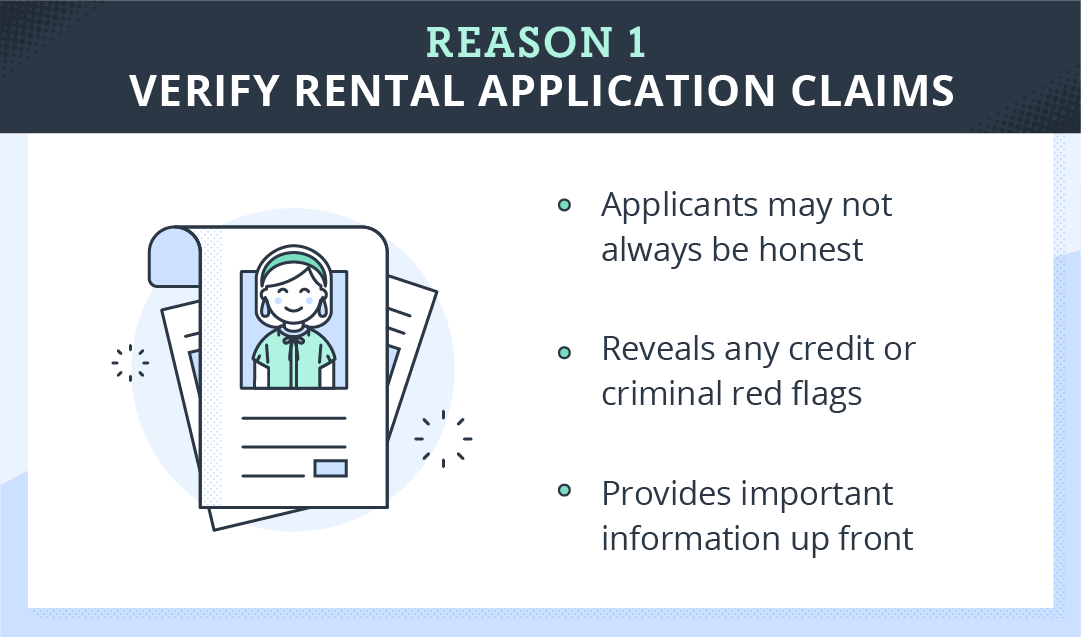
The most obvious reason for landlords to conduct tenant background checks is to reveal any major red flags that would indicate the applicant is not a desirable tenant. Though most rental application templates contain sections for the applicants to disclose any criminal history, many applicants may not be completely honest.
A background check verifies the claims the applicant made on their rental application and ensures the landlord is aware of any criminal or credit histories they may not have disclosed.
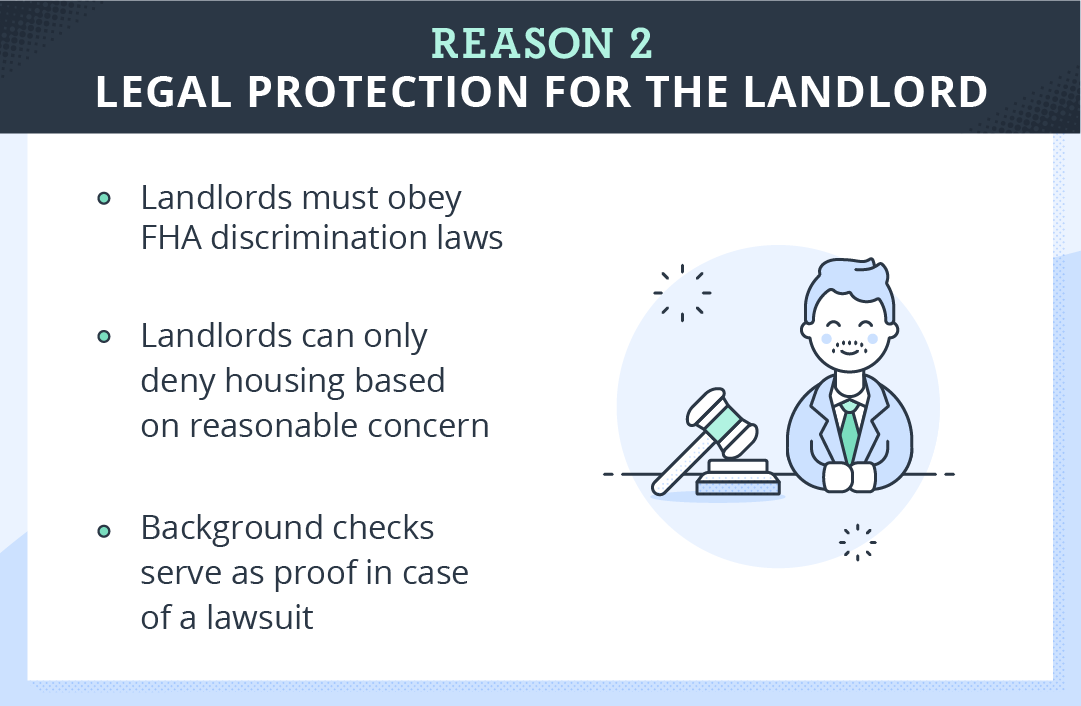
Under the Fair Housing Act (FHA), landlords may not refuse housing to anyone due to discrimination against gender, age, ethnicity, orientation or any number of other demographics.
Landlords may also not deny housing due to criminal history unless they are concerned about the safety of the property and/or the surrounding community. Therefore, it’s important for landlords to obtain all of the critical information surrounding a tenant up front. If a potential tenant threatens a lawsuit due to discrimination under FHA, the landlord can present the tenant background check as proof of reasonable concern.
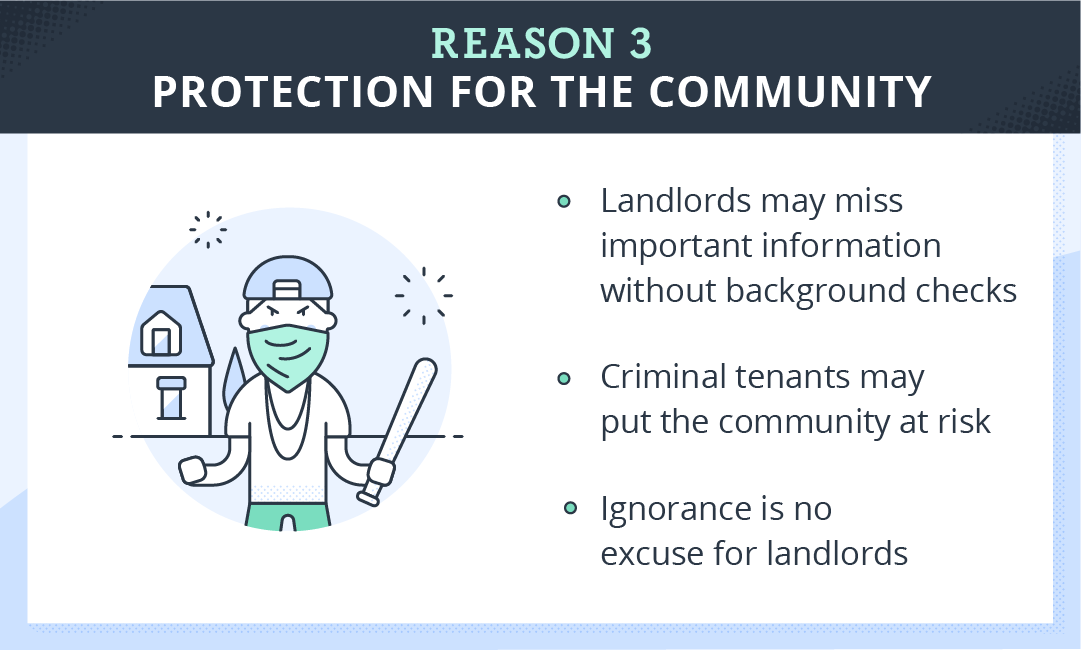
This issue can go the other way as well. If a landlord decides to forego a tenant background check, they may miss important information that could affect other tenants down the road. For example, if an applicant has a history of illegal drug use, they may continue in the rental and endanger other residents.
Ignorance is no excuse for a landlord in this situation, and they may end up facing lawsuits from other tenants for failing to ensure their safety. Major issues with a tenant could even spread to the community outside of the rentals, resulting in angry neighbors and calls to local police.
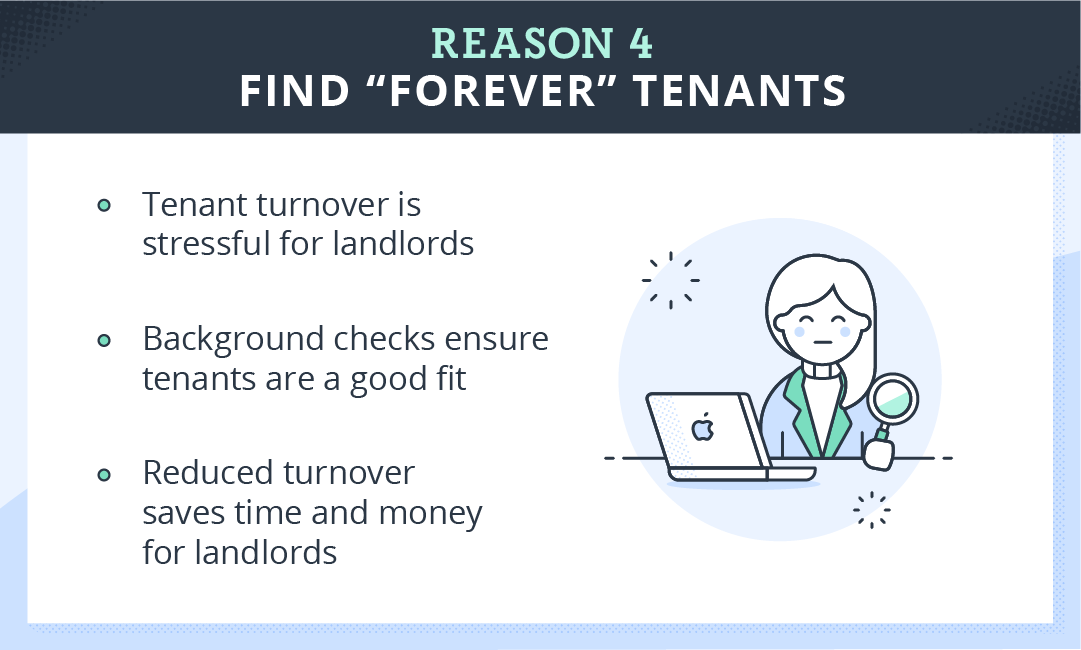
One of the biggest issues landlords deal with is high tenant turnover, as finding qualified new tenants every six months to a year is a lot of work. By utilizing tenant background checks, landlords can find tenants who are best suited to their rentals and will be happy living there for years to come. Reducing tenant turnover saves a lot of time, money and effort for landlords.
Once you’ve received the completed credit check, you need to analyze both the credit and criminal history findings in order to decide if you want to move forward with the applicant.
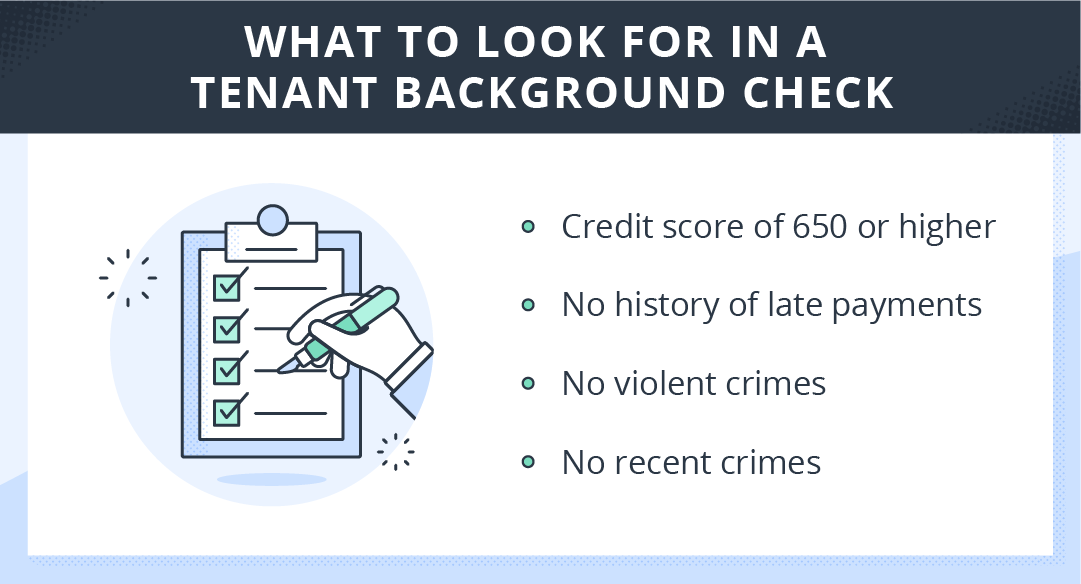
In addition to credit score, many background check services will also weigh an applicant’s payment history. This is because on-time payments are more important to landlords than credit scores, though credit scores are a good overall indicator of financial health.
In general, landlords should look for tenants with at least an average credit score of 650. Though good credit is considered 700–749, most renters will have lower-than-average credit scores as they don’t have mortgage payments to boost them. In addition, landlords should look for applicants with a near-flawless history of on-time payments.
As mentioned above, landlords can deny housing to those with a criminal history if they believe the applicant will put the community at risk. However, just because someone has a felony and/or jail time on their record does not necessarily mean they will be a bad tenant.
This is a judgment call that is up to the landlord’s discretion, and some factors you should consider are:
When it comes to background checks for prospective tenants, the time frames for different types of checks can vary. Typically, rental background checks focus on the past seven years, in line with the Fair Credit Reporting Act (FCRA). However, specific jurisdictions may have regulations that differ from this standard.
Additionally, certain types of infractions, such as evictions and financial delinquencies, may hold relevance for a longer period, and landlords often take these into consideration when conducting tenant background checks. It’s essential for landlords to be aware of state and local laws governing tenant background checks to ensure compliance and informed decision-making when evaluating potential renters.
For landlords conducting background checks as part of the tenant screening process, the duration can vary. Typically, a standard background check for potential tenants may take anywhere from 10 minutes to a week. However, factors such as the comprehensiveness of the check, the responsiveness of the sources providing information, and the complexity of verifying certain details like rental history or employment can impact the timeline.
If the check involves criminal records from multiple jurisdictions, it might take longer due to variations in response times from different courts and law enforcement agencies. It’s essential for landlords to balance thoroughness with efficiency when conducting tenant background checks to ensure informed decision-making while also respecting prospective tenants’ time.
Most tenant credit and background check services for tenants can be found online. TurboTenant partners with TransUnion in order to provide accurate and thorough reports for our landlords. These are also free of cost, as most landlords choose to have applicants pay for the tenant background checks.
Tenant background checks are essential in giving landlords all the information they need to know up front. After all, tenants are an investment and landlords need to know enough in order to make an informed decision. Otherwise, they could end up dealing with an eviction or lawsuit.
DISCLAIMER: TurboTenant, Inc. does not provide legal advice. This material has been prepared for informational purposes only. All users are advised to check all applicable local, state and federal laws and consult legal counsel should questions arise.
15 min read
Learning how to calculate a rental property’s cap rate helps you evaluate its potential income, weigh it against other investment opportunities, and make more...
13 min read
Today, technology offers more ways than ever for tenants to pay rent. ACH transfers, online portals, and rent collection apps help tenants...
12 min read
Whenever tax season rolls around—bringing with it all those dreaded forms and reports—many landlords enlist the help of a real estate tax...
Join the 700,000+ independent landlords who rely on TurboTenant to create welcoming rental experiences.
No tricks or trials to worry about. So what’s the harm? Try it today!
TurboTenant, Inc., © 2025
Created in Sunny Colorado